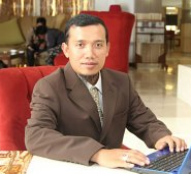PRAKTIK SEWA MENYEWA INDEKOS PADA MASA PANDEMI COVID-19 PERSPEKTIF AKAD IJĀRAH (Studi Kasus di Indekos Kawasan Kampus IAIN Surakarta)
DOI:
https://doi.org/10.22515/alhakim.v3i1.3874Keywords:
Covid-19, Force Majeure, Sewa Menyewa., Akad IjārahAbstract
Abstract
This study aims to explain the practice of renting boarding houses in the IAIN Surakarta campus during the Covid-19 pandemic and explaining the perspective of the ijārah contract for the practice of renting boarding houses in the IAIN Surakarta campus area during the Covid-19 pandemic. This research uses the type of field research that in this research is carried out directly in the field. Sources of data are obtained from primary data in the form of interviews with boarding house owners and tenants as well as secondary data in the form of books, regulations that are all related to the problems studied. The method used is case studies because they occur in the community and focus on certain cases to be observed and analyzed more deeply. The results of this study, the practice of leasing is in accordance with the ijārah contract because of the existence of both parties in the contract, rental wages, goods, and benefits for the goods being rented. However, during the Covid-19 pandemic, the tenant's benefit rights were not fully obtained because force majeure or emergency prevented the tenant from occupying the boarding house. Tenants' obligations during the Covid-19 pandemic are still carried out by paying the boarding house ujrah, this makes the tenants feel disappointed because they do not occupy the boarding house but are still asked to pay the full ujrah. The tenant's disappointment over ujrah during the pandemic does not cancel the contract. In difficult circumstances due to Covid-19, tenants actually get concessions, because the tenant's situation is not an intentional thing. And in the ijārah contract, the concession for the tenant is khiyar or severing the contract.
Keywords: Covid-19; Force Majeure; Ijārah; Contract; Lease.
Abstrak
Penelitian ini bertujuan untuk menjelaskan praktik sewa menyewa indekos dikawasan kampus IAIN Surakarta pada masa pandemi Covid-19 dan menjelaskan perspektif akad ijārah praktik sewa menyewa indekos di kawasan kampus IAIN Surakarta pada masa pandemi Covid-19. Penelitian ini menggunakan jenis penelitian lapangan (filed research) bahwa dalam penelitian ini dilakukan secara langsung di lapangan. Sumber data didapat dari data primer berupa hasil wawancara dengan pemilik dan penyewa indekos serta data sekunder yaitu berupa buku-buku, peraturan-peraturan yang seluruhnya berkaitan dengan permasalahan yang diteliti. Metode yang digunakan studi kasus karena terjadi di lingkungan masyarakat serta fokus pada kasus tertentu untuk diamati dan dianalisis lebih mendalam. Hasil dari penelitian ini, praktik sewa menyewa sudah sesuai dengan akad ijārah karena adanya kedua belah pihak berakad, upah sewa, barang, dan manfaat atas barang yang disewakan. Namun, pada masa pandemi Covid-19 hak manfaat penyewa tidak sepenuhnya didapati karena force majeure atau darurat membuat penyewa tidak menempati indekos. Kewajiban penyewa pada masa pandemi Covid-19 tetap dilaksanakan dengan membayar ujrah indekos, hal tersebut membuat penyewa merasa kecewa karena tidak menempati indekos tetapi tetap diminta untuk membayar ujrah secara penuh. Kekecewaan penyewa atas ujrah pada masa pandemi tidak membatalkan akad. Dalam keadaan sulit karena Covid-19 sebenarnya penyewa dapat kelonggaran, karena keadaan penyewa bukan hal yang disengaja. Dan dalam akad ijārah kelonggaran bagi penyewa yakni khiyar atau memutuskan akad.
Kata Kunci: Akad Ijārah; Covid-19; Force Majeure; Sewa Menyewa.
Downloads
References
Arini, Annisa Dian, “Pandemi Corona Alasan Force Majeure Dalam Suatu Kontrak Bisnis”, Jurnal Supermasi Hukum,Vol. 9 No 1, 2020.
Az-Zahidi, Imam, Ringkasan Shahih Bukhari, Bandung: Lutfi, 2013.
Djazuli, A., Kaidah-Kaidah Fikih, Jakarta: Prenadamedia Group, 2016.
Farida, Uma Ulyana, Penyewa Indekos, Wawancara pribadi, 13 November 2020 jam 07.46-08.48 WIB.
Fatwa Dewan Syariah Nasional Majelis Ulama Indonesia No: 112/DSN-MUI/IX/2017 Tentang akad Ijārah.
Handayani, Rina Tri, Pandemi COVID-19,“Respon Imun Tubuh dan Herd Immunity, Jurnal Ilmiah Permas: Jurnal Ilmiah STIKES Kendal, Sekolah Tinggi Ilmu Kesehatan Kendal,Vol.10 No 3, 2020.
Idri, Hadis Ekonomi: Ekonomi dalam Perspektif Hadis Nabi Edisi Pertama, Jakarta:Prenamedia Group, 2015.
Kementerian Agama Saudi Arabia, https://tafsirweb.com/10986-quran-surat-at-talaq-ayat-6.html, Tafsir Al-Muyassar, diakses pada 16 November 2020 11.43 WIB.
Keputusan Presiden Republik Indonesia Nomor 12 Tahun 2020 Tentang Penetapan Bencana Nonalam Penyebaran Corona Virus Discase 2019 (Covid-19) Sebagai Bencana Nasional.
Mubarok, Abu Hazim, Fiqih Idola; Terjemah Fathul Qorib, Cet. Ke-1,Kediri: Mukjizat, 2012.
Na’mah, Zaidatun, Penyewa Indekos, Wawacara Pribadi, 17 Maret 2021,jam 16.43-17.10 WIB.
Nashirudin, Muh. Ta’līl al-Ahkām dan Pembaruan Ushul Fikih, Ahkam, Jurnal Ilmu Syari’ah, Vol. 15, No. 1, 2015 http://journal.uinjkt.ac.id/index.php/ahkam/article/view/2844.
Otto Hasibuan, Wawancara Tentang Force Majeure Terkait Wabah Covid-19, Youtube Wawancara Nusantara Tv, diakses pada 18 April 2021, Pukul 14.49 WIB.
M. Pudjiharjo, Nur Faizin Muhith, Kaidah-Kaidah Fikih untuk Ekonomi Islam, Cet.Ke-1, Malang: UB Press, 2017.
Soemitra, Andri, Hukum Ekonomi Syariah dan Fiqih Muammalah di Lembaga Keuangan dan Bisnis Kontemporer, Cet. 1,Jakarta: Pernadamedia Group, 2019.
Supardi, Metode Penelitian Ekonomi Bisnis, Yogyakarta: UII Press, 2015.
Syafe’i, Rachmat, Fiqih Muamalah, Bandung, Pustaka Setia: 2001
Downloads
Submitted
Accepted
Published
How to Cite
Issue
Section
License
Copyright (c) 2021 Farikha Anisatuzzahro, Muh. Nashirudin

This work is licensed under a Creative Commons Attribution-ShareAlike 4.0 International License.

















